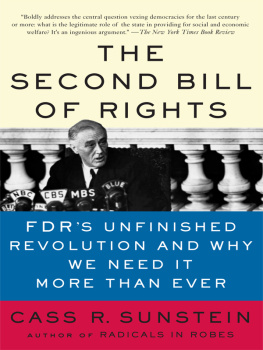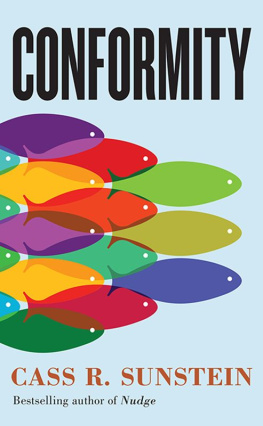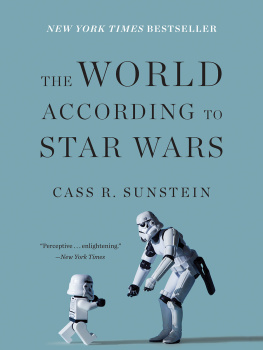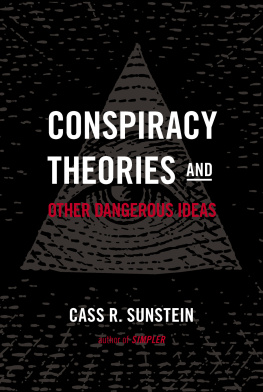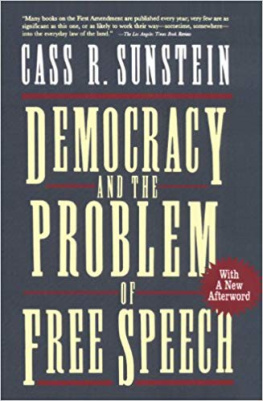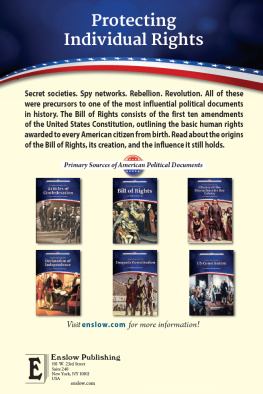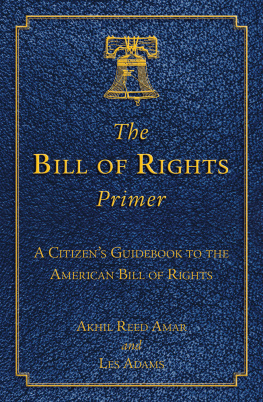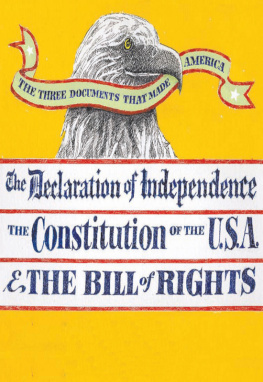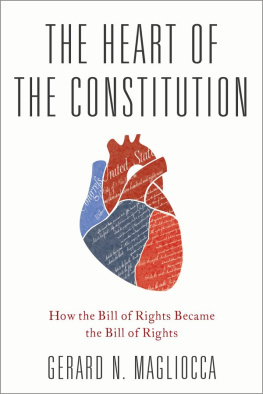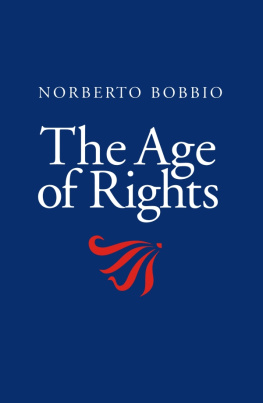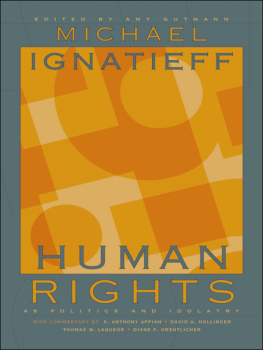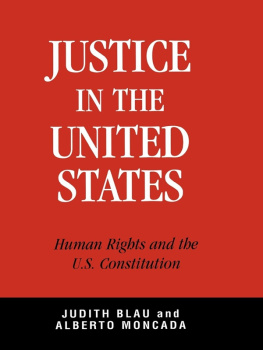Sunstein - The second bill of rights: FDRs unfinished revolution and why we need it more than ever
Here you can read online Sunstein - The second bill of rights: FDRs unfinished revolution and why we need it more than ever full text of the book (entire story) in english for free. Download pdf and epub, get meaning, cover and reviews about this ebook. City: New York, year: 2004;2012, publisher: Basic Books, genre: Politics. Description of the work, (preface) as well as reviews are available. Best literature library LitArk.com created for fans of good reading and offers a wide selection of genres:
Romance novel
Science fiction
Adventure
Detective
Science
History
Home and family
Prose
Art
Politics
Computer
Non-fiction
Religion
Business
Children
Humor
Choose a favorite category and find really read worthwhile books. Enjoy immersion in the world of imagination, feel the emotions of the characters or learn something new for yourself, make an fascinating discovery.
The second bill of rights: FDRs unfinished revolution and why we need it more than ever: summary, description and annotation
We offer to read an annotation, description, summary or preface (depends on what the author of the book "The second bill of rights: FDRs unfinished revolution and why we need it more than ever" wrote himself). If you haven't found the necessary information about the book — write in the comments, we will try to find it.
This is an ambitious, sweeping book that argues how rights are vital to the continuing security of our nation.
The second bill of rights: FDRs unfinished revolution and why we need it more than ever — read online for free the complete book (whole text) full work
Below is the text of the book, divided by pages. System saving the place of the last page read, allows you to conveniently read the book "The second bill of rights: FDRs unfinished revolution and why we need it more than ever" online for free, without having to search again every time where you left off. Put a bookmark, and you can go to the page where you finished reading at any time.
Font size:
Interval:
Bookmark:

In The Second Bill of Rights, Cass Sunstein, a University of Chicago law professor who is one of todays academic stars... makes a good case for giving greater heed to the special status of certain human needs in constitutional law.... Sunstein provides a credible argument for some doctrinal modifications. Accomplishing this is no mean achievement.
Washington Monthly
[The Second Bill of Rights] is focused and clear in showing how FDR sowed the seeds of the Universal Declaration of Human Rights and energetic in discussing this proposals further possible legacy.
Publishers Weekly
Raises many good points worth arguing over as reformists seek to reshape American liberalismand recapture its former power.
Kirkus Reviews
It is often said that America is allergic to social and economic rights. Cass Sunstein shows that this is wrong, in a masterful evocation of Franklin Roosevelts vision of a more just and equal America built upon social and economic rights guarantees for all. The relevance of this vision to the politics of today is only too obvious. Read Sunstein and be inspired.
Michael Ignatieff, Carr Professor of Human Rights,
Kennedy School of Government, Harvard University
Thanks to Cass Sunstein, Franklin D. Roosevelt has been recaptured as constitutional visionary and theorist. For those who see the Constitution only in terms of negative rights and limitations on the government, FDR provides a bracing challenge that is as urgent now as it was when issued a half-century ago.
Dennis J. Hutchinson, University of Chicago
Law School, Editor, Supreme Court Review
Whatever the ideology du jour, Cass Sunstein has always stood for a vigorous liberalism that strengthens America by strengthening Americans. The Second Bill of Rights is a most welcome addition to his efforts.
Alan Wolfe
The Second Bill of Rights is a major contribution to the dialogue between past and present that will define Americas future.
Bruce Ackerman, Yale Law School
Until the 1980s, American conservatives and liberals, despite their profound differences, shared certain principles about how Americas greatness could best be sustained and expanded. Now that old and well-tested agreement has broken down, with calamitous results and even worse portents for the entire county. Going back to the legacy of F.D.R., Cass Sunstein, with his usual brilliance and grace, retrieves what has been broken and forgotten, and offers a new path to the future an American future based on hope not fear, on common sense and not partisan platitudes.
Sean Wilentz, Dayton-Stockton Professor of History
and Director of the Program in American
Studies Princeton University
Also by Cass R. Sunstein
Radicals in Robes, 2005
Why Societies Need Dissent, 2003
Risk and Reason, 2002
Punitive Damages (with Reid Hastie, John Payne,
David Schkade, and W. Kip Viscusi), 2002
Designing Democracy, 2001
Republic.com, 2001
One Case at a Time, 1999
The Cost of Rights (with Stephen Holmes), 1999
Free Markets and Social Justice, 1997
Legal Reasoning and Political Conflict, 1996
Democracy and the Problem of Free Speech, 1993
The Partial Constitution, 1993
After the Rights Revolution, 1990

TO THE MEMORY OF MY FATHER
Copyright 2004 by Cass R. Sunstein
Hardcover first published in 2004 by Basic Books,
A Member of the Perseus Books Group
Paperback first published in 2006 by Basic Books
All rights reserved. Printed in the United States of America. No part of this book may be reproduced in any manner whatsoever without written permission except in the case of brief quotations embodied in critical articles and reviews. For information, address Basic Books, 387 Park Avenue South, New York, NY 10016-8810.
Books published by Basic Books are available at special discounts for bulk purchases in the United States by corporations, institutions, and other organizations. For more information, please contact the Special Markets Department at the Perseus Books Group, 11 Cambridge Center, Cambridge MA 02142, or call (617) 252-5298, (800) 255-1514 or e-mail .
Designed by Reginald R. Thompson
The Library of Congress has cataloged this book as follows:
Sunstein, Cass R.
The second bill of rights : FDR's unfinished revolution and why we need it more than ever / Cass R. Sunstein.
p. cm.
Includes bibliographical references and index.
ISBN-13: 978-0-465-08332-9
ISBN-10: 0-465-08332-3 (alk. paper)
1. Human rightsUnited StatesHistory. 2. United StatesSocial policy. 3. United StatesEconomic policy. 4. Labor policyUnited States. I. Title.
KF3300.S863 2004
342.7308'5dc22 2003025549
ISBN-13: 978-0-465-08333-6; ISBN-10: 0-465-08333-1
06 07 08 / 10 9 8 7 6 5 4 3 2 1
The alms given to a naked man in the street do not fulfil the obligations of the state, which owes to every citizen a certain subsistence, a proper nourishment, convenient clothing, and a kind of life not incompatible with health.
Montesquieu
I ask Congress to explore the means for implementing th[e] economic bill of rightsfor it is definitely the responsibility of the Congress to do so.
Franklin Delano Roosevelt
Those who denounce state intervention are the ones who most frequently and successfully invoke it. The cry of laissez faire mainly goes up from the ones who, if really let alone, would instantly lose their wealth-absorbing power.
Lester Ward
Franklin Delano Roosevelt
January 11, 1944
EVERY AMERICAN IS ENTITLED TO:
The right to a useful and remunerative job in the industries or shops or farms or mines of the nation;
The right to earn enough to provide adequate food and clothing and recreation;
The right of every farmer to raise and sell his products at a return which will give him and his family a decent living;
The right of every businessman, large and small, to trade in an atmosphere of freedom from unfair competition and domination by monopolies at home or abroad;
The right of every family to a decent home;
The right to adequate medical care and the opportunity to achieve and enjoy good health;
The right to adequate protection from the economic fears of old age, sickness, accident, and unemployment;
The right to a good education.
MY MAJOR AIM in this book is to uncover an important but neglected part of Americas heritage: the idea of a second bill of rights. In brief, the second bill attempts to protect both opportunity and security, by creating rights to employment, adequate food and clothing, decent shelter, education, recreation, and medical care. The presidency of Americas greatest leader, Franklin Delano Roosevelt, culminated in the idea of a second bill. It represented Roosevelts belief that the American Revolution was radically incomplete and that a new set of rights was necessary to finish it.
The second bill was proposed in 1944 in a widely unknown speech that was, I believe, the greatest of the twentieth century. The origins of the basic idea can be traced to the earliest days of Roosevelts New Deal, and even before, to his first campaign for the presidency, when he proposed an economic declaration of rights that entailed a right to make a comfortable living. The second bill was a direct product of Americas experience with the desperation and misery of the Great Depression. Rights are a product of wrongs, and after a period of massive unemployment and poverty, it seemed only natural to argue on behalf of a right to economic security. But the immediate impetus for the second bill came from a fusion of New Deal thinking in the early 1930s with the American response to World War II in the early 1940s. The threat from Hitler and the Axis powers broadened the New Deals commitment to security and strengthened the nations appreciation of human vulnerability. At the same time, the external threat deepened the need for a fresh understanding of Americas defining commitments, an understanding that could have international as well as domestic appeal and could serve as a beacon of hope, an example of what free societies and decent governments offer their people.
Font size:
Interval:
Bookmark:
Similar books «The second bill of rights: FDRs unfinished revolution and why we need it more than ever»
Look at similar books to The second bill of rights: FDRs unfinished revolution and why we need it more than ever. We have selected literature similar in name and meaning in the hope of providing readers with more options to find new, interesting, not yet read works.
Discussion, reviews of the book The second bill of rights: FDRs unfinished revolution and why we need it more than ever and just readers' own opinions. Leave your comments, write what you think about the work, its meaning or the main characters. Specify what exactly you liked and what you didn't like, and why you think so.

